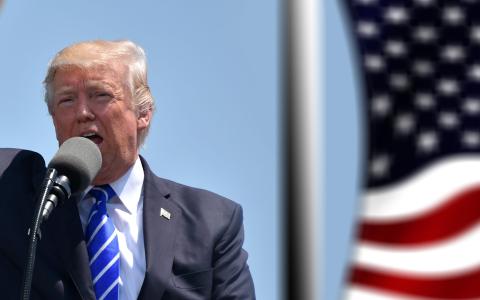
Commerce Secretary Howard Lutnick defended President Trump’s newly signed reciprocal tariffs as a necessary correction to longstanding trade imbalances that disadvantage American producers.
Speaking on Fox News’ “Hannity,” Lutnick emphasized that the European Union and other major trade partners have persistently blocked U.S. agricultural exports, including poultry, lobster, and beef, despite strong demand elsewhere. “They won’t take our chicken, they won’t take our lobster, and they hate our beef — not because it’s inferior, but because it’s better,” Lutnick said.
He described the administration’s action as long overdue and positioned the policy as a win for American producers. “For too long, our farmers, ranchers, and manufacturers have been taken advantage of. President Trump is finally demanding fair treatment — either these countries open up their markets to our goods, or they pay to access ours,” he said.
Trump formalized the policy on Wednesday with an executive order that imposes reciprocal tariffs on foreign nations that maintain trade barriers against U.S. products. “Reciprocal. That means they do it to us, and we do it to them. Very simple,” Trump said during his announcement.
The new tariff structure establishes a baseline rate of 10%, with adjustments based on the trade policies of individual nations. The European Union now faces a 20% tariff; India, 26%; and China, an additional 34%, bringing China’s total tariff exposure to 54% following earlier measures. The scope of the tariffs spans 185 countries.
For wealth advisors and registered investment advisors (RIAs), the announcement signals a shift toward more aggressive trade enforcement that may influence global markets, supply chains, and sector-specific equities. In particular, U.S.-based agriculture, industrial manufacturing, and commodities could see near-term tailwinds as retaliatory measures aim to level the playing field for domestic producers.
Lutnick’s support for reciprocal tariffs is consistent with his statements during Senate confirmation hearings in January, where he called for a tougher stance on global trade. “We’re treated poorly under the current system,” he said. “Other nations have higher tariffs, deploy non-tariff barriers, and subsidize their industries while we play fair. It’s time to restore balance through strategic use of tariffs — not as punishment, but as leverage for fairness and respect.”
The Commerce Department declined to provide further comment when contacted by Business Insider. However, the policy’s intent is clear: to compel trading partners to dismantle barriers or face equivalent costs, with an eye toward incentivizing market access for U.S. goods.
For RIAs, these developments underscore the importance of global macro monitoring and portfolio diversification. Heightened volatility across global equity markets and potential realignment of international trade flows may create new opportunities in domestic sectors positioned to benefit from reduced import competition and expanded export potential.



